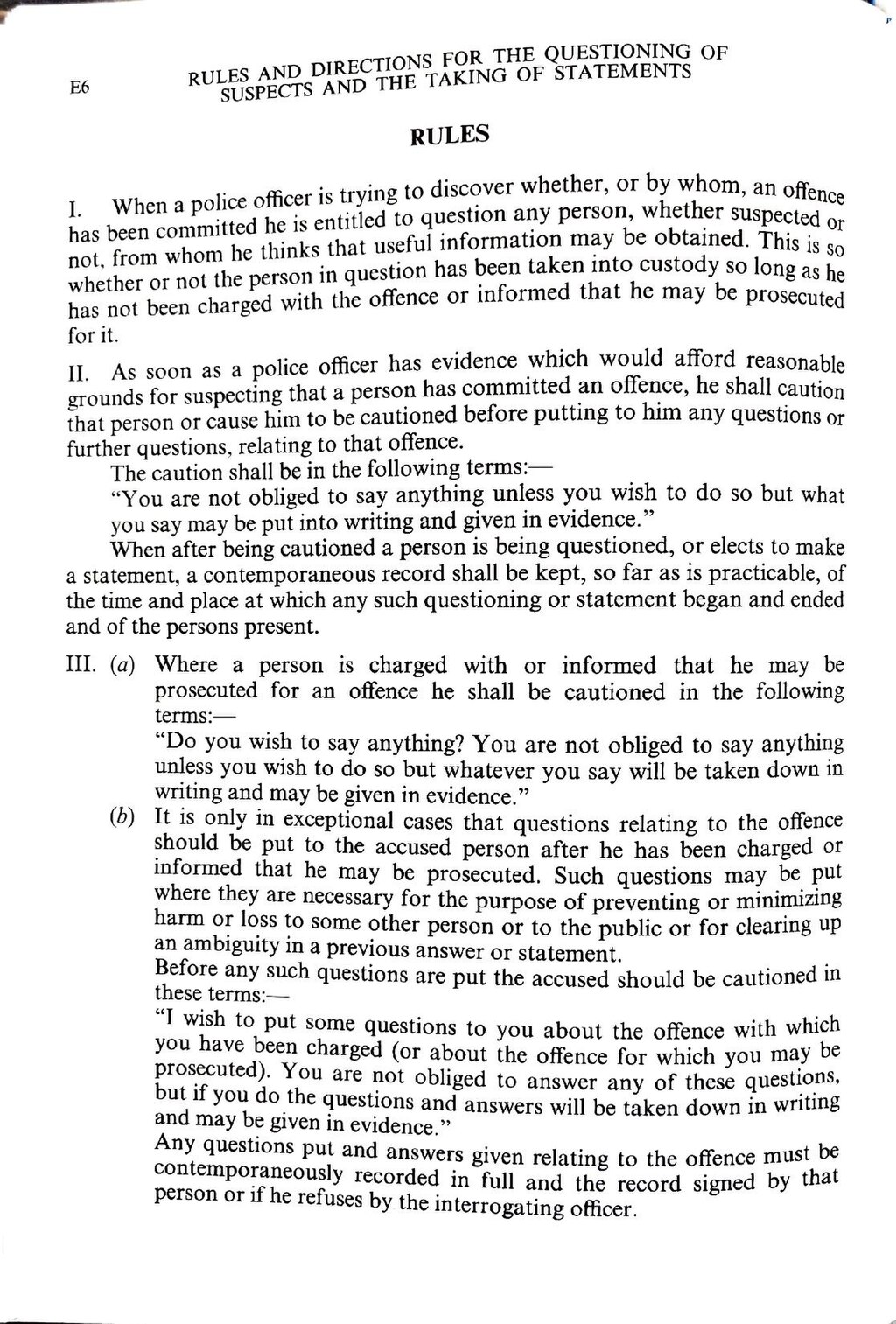RULES AND DIRECTIONS FOR THE QUESTIONING OF
SUSPECTS AND THE TAKING OF STATEMENTS
RULES
I. When a police officer is trying to discover whether, or by whom, an offence has been committed he is entitled to question any person, whether suspected or not, from whom he thinks that useful information may be obtained. This is so whether or not the person in question has been taken into custody so long as he has not been charged with the offence or informed that he may be prosecuted for it.
II. As soon as a police officer has evidence which would afford reasonable grounds for suspecting that a person has committed an offence, he shall caution that person or cause him to be cautioned before putting to him any questions or further questions, relating to that offence.
- The caution shall be in the following terms:—
- “You are not obliged to say anything unless you wish to do so but what you say may be put into writing and given in evidence.”
When after being cautioned a person is being questioned, or elects to make a statement, a contemporaneous record shall be kept, so far as is practicable, of the time and place at which any such questioning or statement began and ended and of the persons present.
- III. (a) Where a person is charged with or informed that he may be prosecuted for an offence he shall be cautioned in the following terms:—
- “Do you wish to say anything? You are not obliged to say anything unless you wish to do so but whatever you say will be taken down in writing and may be given in evidence.”
- (b) It is only in exceptional cases that questions relating to the offence should be put to the accused person after he has been charged or informed that he may be prosecuted. Such questions may be put where they are necessary for the purpose of preventing or minimizing harm or loss to some other person or to the public or for clearing up an ambiguity in a previous answer or statement.
- Before any such questions are put the accused should be cautioned in these terms:—
- “I wish to put some questions to you about the offence with which you have been charged (or about the offence for which you may be prosecuted). You are not obliged to answer any of these questions, but if you do the questions and answers will be taken down in writing and may be given in evidence.”
- Any questions put and answers given relating to the offence must be contemporaneously recorded in full and the record signed by that person or if he refuses by the interrogating officer.
